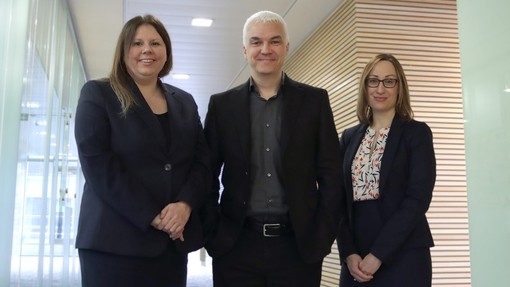Relocation of children and obtaining leave to remove – is the world your oyster?

Details
Some of the most challenging cases for parents, lawyers and the courts to grapple with involve those where one parent wishes to relocate out of the jurisdiction of England and Wales with the children. Unlike many standard child arrangement cases addressing the shared care arrangements for the children on separation, there is often no acceptable middle-ground compromise to be reached. The court is faced with a binary outcome, the outcome of which will often leave one parent heartbroken and will have a considerable impact on the way in which that parent can continue to play a meaningful role in their child’s life.
Legal framework and procedure
In making the decision as to whether or not to grant the application for leave to remove, the court must ultimately be guided by the welfare of the child (being the paramount consideration, by law, in most disputes concerning children), and the welfare checklist set out in the Children Act 1989. The court must undertake a holistic review of all the evidence presented by each parent, to undertake a comparative evaluation of the plans proposed by each. There is no presumption in favour of the mother or father, nor in favour or against the parent wishing to relocate. Each case will be different and will turn on its own, highly specific facts. The court must also take into account the Article 8 rights of both parents and the children being the right to family life. Further, there is now enshrined in law a presumption that the involvement of a parent in the child’s life will further their welfare, unless/until that can be shown to be untrue in the specific case. However, this is not a complete bar to relocation as ‘involvement’ can take a number of forms, from indirect contact all the way to shared or even majority care.
It is essential that these cases are handed sensitively, with real consideration given to the impact of relocation (or not) on the children, on both parents, and the consequent impact on the various relationships.
The court will ordinarily instruct the Children and Family Court Advisory and Support Service (Cafcass) to complete a report. The officer should thoroughly review both parties’ written evidence and discuss matters with each as well as with the children, where appropriate. The officer will then make recommendations to the court. The court will usually be heavily guided by the officer’s recommendations, although they do not carry any special status in law and it is possible for the court to depart from those recommendations in making the final decision.
Whether or not the child’s wishes and feelings will be determinative will depend on their age and maturity, but also how those wishes and feelings fit into the factual matrix as a whole. There is no one factor which will always determine the success or otherwise of such an application.
In some, more complex cases, the court may in fact join the child to the proceedings, appointing a guardian. The guardian will in turn appoint a solicitor to represent the child.
Otherwise, the court may wish to acquire some of the following:
- A report from any local authority that has been involved with the family
- Police disclosure where appropriate
- Drug and alcohol testing where credible allegations have been made
- A report from the child’s school commenting on their achievement levels, attendance, and general wellbeing
- Expert evidence in respect of the enforceability (or otherwise) of English law orders in the proposed new country
- Medical evidence in respect of the child, and/or either parent where appropriate
This list is of course non-exhaustive, as different cases will throw up different issues.
Once all appropriate information has been gathered, the court will likely set the matter down for a final hearing, which would usually be for two or three days but could well be more depending the complexity of the case. Both parties can expect to give evidence, as well as the Cafcass officer, and where appropriate other third parties.
Top tips for a parent wishing to relocate
- Firstly, consider very carefully whether you genuinely feel that the relocation would be in the child’s best interests, and not just your own. These can be difficult and stressful proceedings, and you need to be entirely committed to the intended relocation.
- Clear, well-thought-out and well-evidenced plans are essential, therefore the primary statement is absolutely key. Consider proposals for (and evidence in support of):
- Accommodation
- Nursery/schooling/childcare options – does the proposed school actually have availability to take the child? Are there any entrance requirements? Is admission limited to a certain catchment area? What does the school offer that makes it a good choice for your particular child and their interests and needs? If there are school fees, how will these be paid?
- Local amenities and activities – tailored specifically to your child’s interests and needs
- Would the move provide enhanced support from family or friends? What pre-existing relationship do those family and friends have with the child?
- Consider practical arrangements for meeting the children’s needs with the other parent in a different country, and likely unable to help on a day-to-day basis.
- What options are there for your employment? Do you have solid and realistic plans to secure your own income?
- Crucially, what do you propose for the left-behind parent to maintain their relationship with the child? Should contact take place in the new or old country, or both? Who is responsible for funding such visits? Where is the parent to stay? For how long and how often? What form does travel take between the two countries, how regular are flights and at what cost? Generous (but realistic) proposals for regular contact are far more likely to find favour.
- How will the relationship be maintained between visits – consider whether indirect contact through the use of regular video calls for example would assist, bearing in mind the age of the child and their ability to use such technology in a meaningful way.
- How will the contact proposals take into account the need to approach special occasions fairly, such as Christmas or other key religious festivals, as well as birthdays.
- To what extent has the intention to relocate been a long held goal, clearly expressed and discussed with the remaining parent? The court will naturally consider more seriously a long held and committed plan, over and above an ill thought out and speculative hope.
- If this is a ‘going home’ case, consider the impact of having to remain in the UK. Provide evidence of the impact of refusal, and any relevant physical/mental health concerns relating to you or the child.
- Don’t forget – the onus will be on you, as the parent wishing to disrupt the status quo, to do the running in support of your case.
Top tips for a parent opposing the application to relocate
- Firstly, as with a parent wishing to relocate, consider very carefully whether the proposed relocation might in fact be beneficial for your child, if you are satisfied that proper and reasonable arrangements can be put in place for ongoing and quality contact.
- The parent wishing to relocate should ordinarily file their evidence first, so ensure that your statement carefully considers and critiques those plans, as well as setting out counter-proposals for the child to remain in the jurisdiction.
- What role do you currently play in the child’s life? Provide detail of current care arrangements and your involvement in nursery/school life, the child’s social life and extra-curricular activities. The court may well be cautious to disrupt a well-established co-parenting relationship.
- Be forthright in setting out the impact of the child’s removal – on your relationship with them, on your involvement in their daily life, their educational life etc.
- How realistic are the plans of the parent wishing to relocate – in terms of cost, annual leave, accommodation options etc. Proposals for you to visit four times a year for three weeks at a time may sound generous, but if you only have 25 days’ annual leave, they may simply be unworkable.
- Ensure your own statement is equally detailed, and well evidenced, and covers all key matters such as accommodation, education, employment in the child’s current home country.
- Reflect on plans and discussions you had as a family – before and following your child’s birth. Was there a long-term commitment to family life in England? To an English education?
- What realistic options would you have if the relocating parent breached any English order – is the country a signatory to international conventions regarding child abduction, which would provide some right of recourse?
In our experience, the court’s attention will focus heavily on the extent to which each parent can support the child’s relationship with the other parent. At every stage, the court will want to be satisfied that the move/objection to the move has the child’s best interests at heart, and that the parent’s position is not viewed entirely through the prism of their own wants and needs.
Worldwide travel restrictions due to COVID-19 have of course added an extra layer of complexity to these cases, as international travel is not currently the given it once was.
We would strongly recommend that you obtain expert legal advice prior to embarking on such an application, or in the event that you wish to oppose an application.






